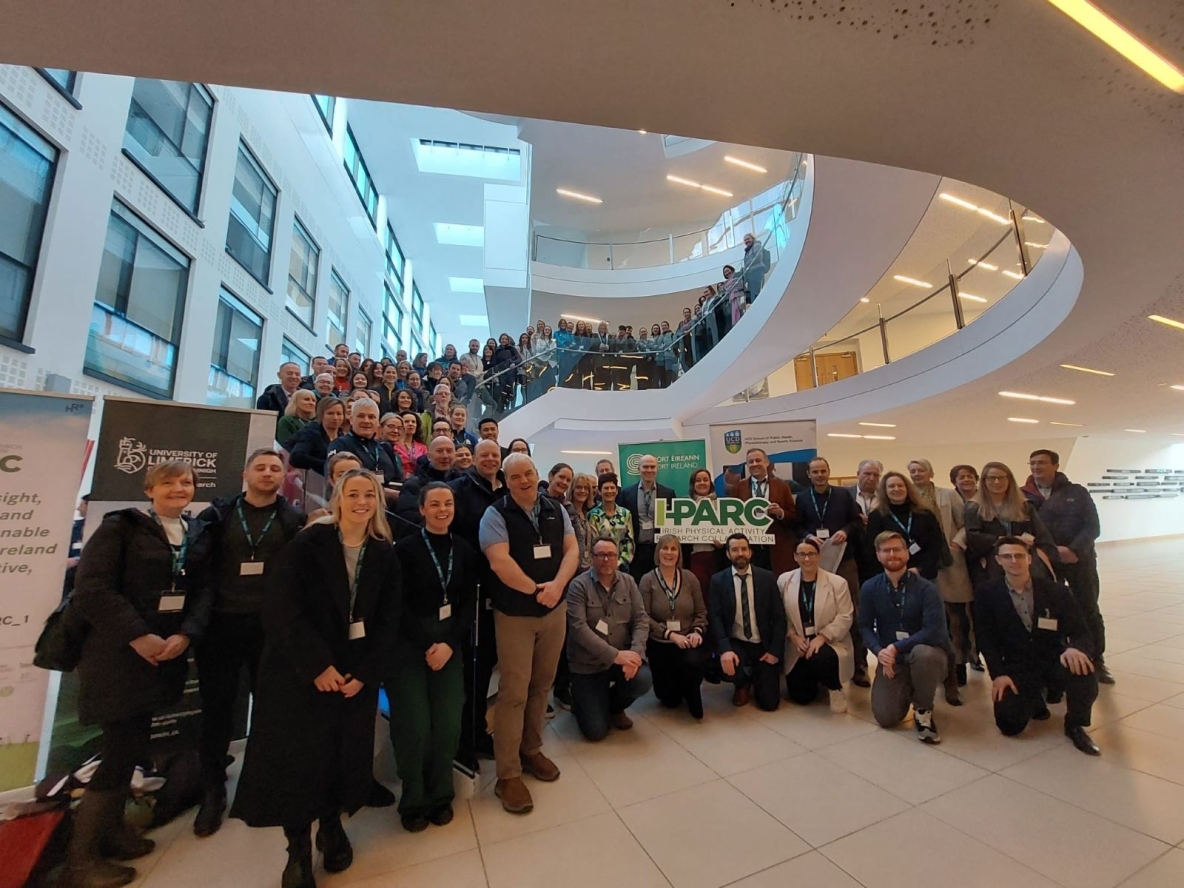

Our sincerest congratulations to Prof. Catherine Woods and her team on receiving the HRB Applied Partnership Award
Lead applicant: Professor Catherine Woods
Title: The Irish Physical Activity Research Collaboration (I-PARC): Maximising tailored implementation of evidence-based physical activity programmes to address population levels of physical inactivity.
Host institution: University of Limerick
Lead Knowledge User: Dr Fiona Mansergh (Department of Health)
Award total: €238,860
HRB contribution: €198,860. Knowledge user contribution (Department of Health): €40,000
The high and growing burden of physical inactivity continues to have a negative impact on the national health economy. In Ireland, 13.5% of children and 46% of adults are meeting the public health recommendations for physical activity. Achievement of such guidelines across a population has the potential to address several sustainable development goals, including improved “health and well-being” and “sustainable cities and communities”. To address this, focus has been placed on identifying effective physical activity programmes and embedding them into routine practice. However, despite the identification of effective programmes (e.g. Men on the Move, Active School Flag), there remains a challenge to embed them into routine practice across different geographical, socio-economic and cultural contexts. Instead of using resources to focus on development of “new” programmes, there is now a need to understand how current effective programmes can be embedded successfully implemented across different contexts.
To increase the success of embedding physical activity programmes into routine practice, we need to understand the strategies used to overcome common challenges across different contexts. This research aims to work in collaboration with stakeholders across different “Active Cities” (e.g. Cork, Dublin, Galway, Limerick and Waterford) to 1) adapt and tailor effective physical activity programmes for their context, 2) identify strategies to aid delivery of programmes in routine practice, and 3) assess the usability and usefulness of the I-PARC implementation platform. The I-PARC implementation platform will consist of strategies to help stakeholders in different contexts identify, adapt, deliver, maintain and scale-up effective physical activity programmes. The platform will be shared across practice, policy and research to inform the best use of available resources with successfully embedding effective physical activity programmes into different contexts. This in turn will help to increase population levels of physical activity, leading to the associated health and economic benefits.